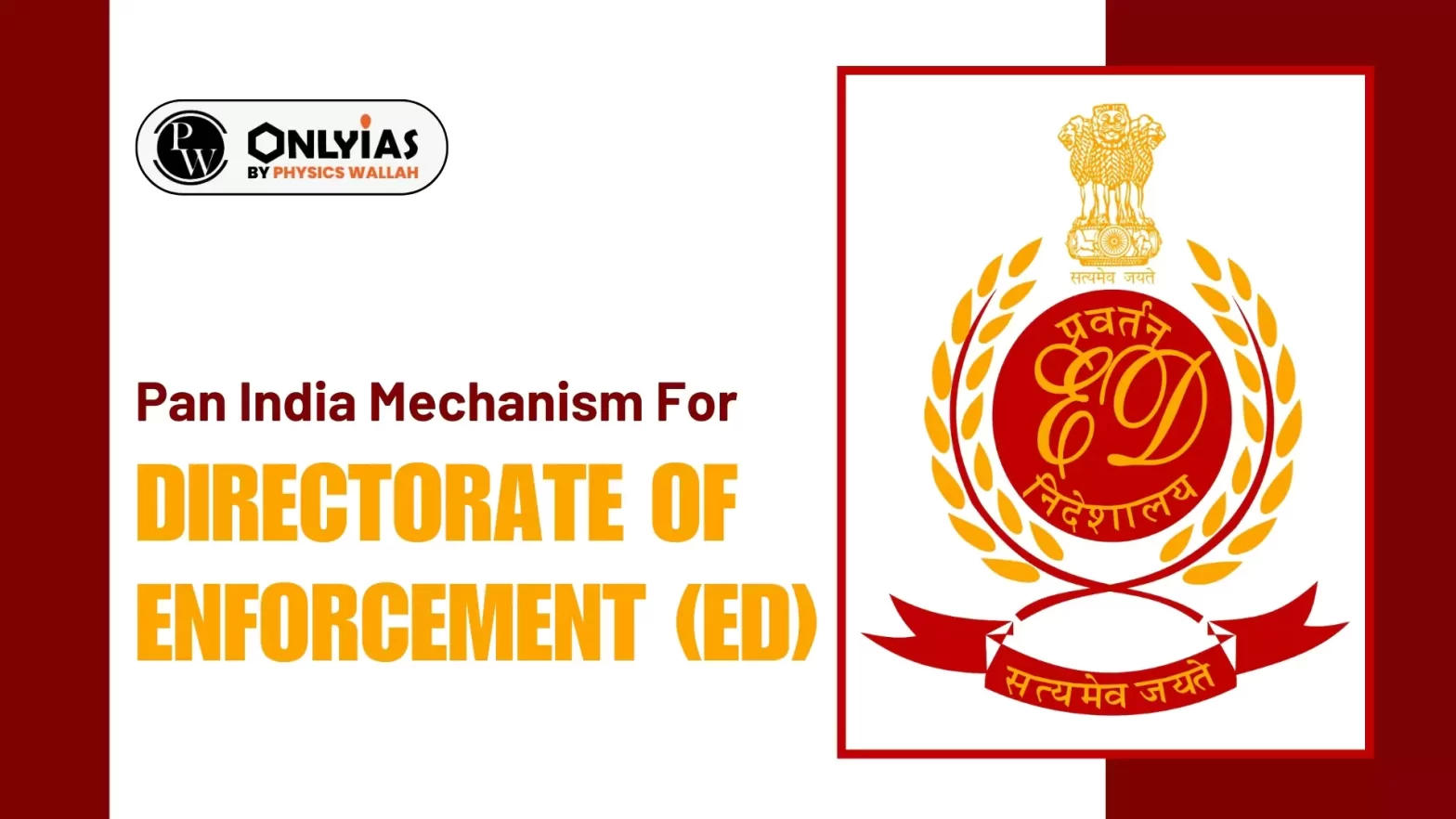Context:
This editorial is based on the news “Need a ‘mechanism’ to detect vendetta in ED-States cases: Supreme Court” which was published in the Hindu. The Supreme Court calls for a mechanism to detect political vendetta in the Directorate of Enforcement (ED) probe.
Pan India Mechanism For Directorate of Enforcement (ED)
- The Supreme Court has suggested a pan-india mechanism, incorporating “best practices,” to prevent political disputes between state governments and the Directorate of Enforcement (ED) from hindering impartial criminal investigations into money laundering and corruption.
About Directorate of Enforcement (ED)
- Role: Directorate of Enforcement (ED) was formed in 1956 for investigating economic offences under the Prevention of Money Laundering Act (PMLA), Fugitive Economic Offenders Act, Foreign Exchange Management Act and Foreign Exchange Regulation Act.
- Nodal Ministry: Ministry of Finance.
- Headquarters: New Delhi
- Powers: Issues Summons: It mandates the physical presence of individuals, who must submit necessary documents and respond to inquiries.
Challenges Associated With Directorate of Enforcement
- Misuse of Power: It has faced criticism for its unrestricted authority to prosecute politicians and government officials without prior state government permission.
- The PMLA, initially focused on drug trafficking-related money laundering, has been expanded to cover minor offenses, drawing criticism.
- Functional Opacity: Concerns about functional opacity and a lack of transparency arise from accusations of the Directorate of Enforcement (ED) targeting opposition parties in its case selection.
- Lower Conviction Rate: The number of convictions between 2005 and 2013-14 and only 23 out of 888 cases registered between 2014-15 and 2021-22.
- Allegations of Political Meddling: The ED has faced accusations of political interference, Preferential treatment for individuals aligning with the ruling party, sparking concerns about bias and a lack of independence in the ED’s actions.
- Resource Constraints: The ED operates within a restricted budget, limiting its capacity to thoroughly investigate and prosecute economic offenses.
- Inter-agency Cooperation Challenges: The ED encounters difficulties in securing cooperation from other agencies, including the State Police and the Central Bureau of Investigation (CBI).
Way Forward
- Guarding Against Political Motives: The Directorate of Enforcement (ED), empowered by the PMLA, must avoid misuse of its extensive powers for political motives.
- Balancing Swiftness and Fairness: Investigations should not turn into punitive actions, and cases need swift resolution for timely trials and convictions.
- Emphasis on Systemic Reforms: The ED seeks a balance between expeditious proceedings and maintaining integrity, emphasizing the need for systemic reforms rather than extreme measures.
- Preserving Integrity: Navigating a delicate path, the ED aims to preserve its integrity by accelerating investigations and court procedures.
Conclusion
The credibility of leading investigative institutions are under scrutiny. The fight against corruption is closely linked to overhauling investigative processes, requiring collaboration among adjudicating authorities for transparency and fairness. The Supreme Court’s intervention in the ED-states conflict, advocating for a screening mechanism to alleviate concerns of perceived or actual political vendettas, is a positive development.”
![]() 2 Feb 2024
2 Feb 2024

